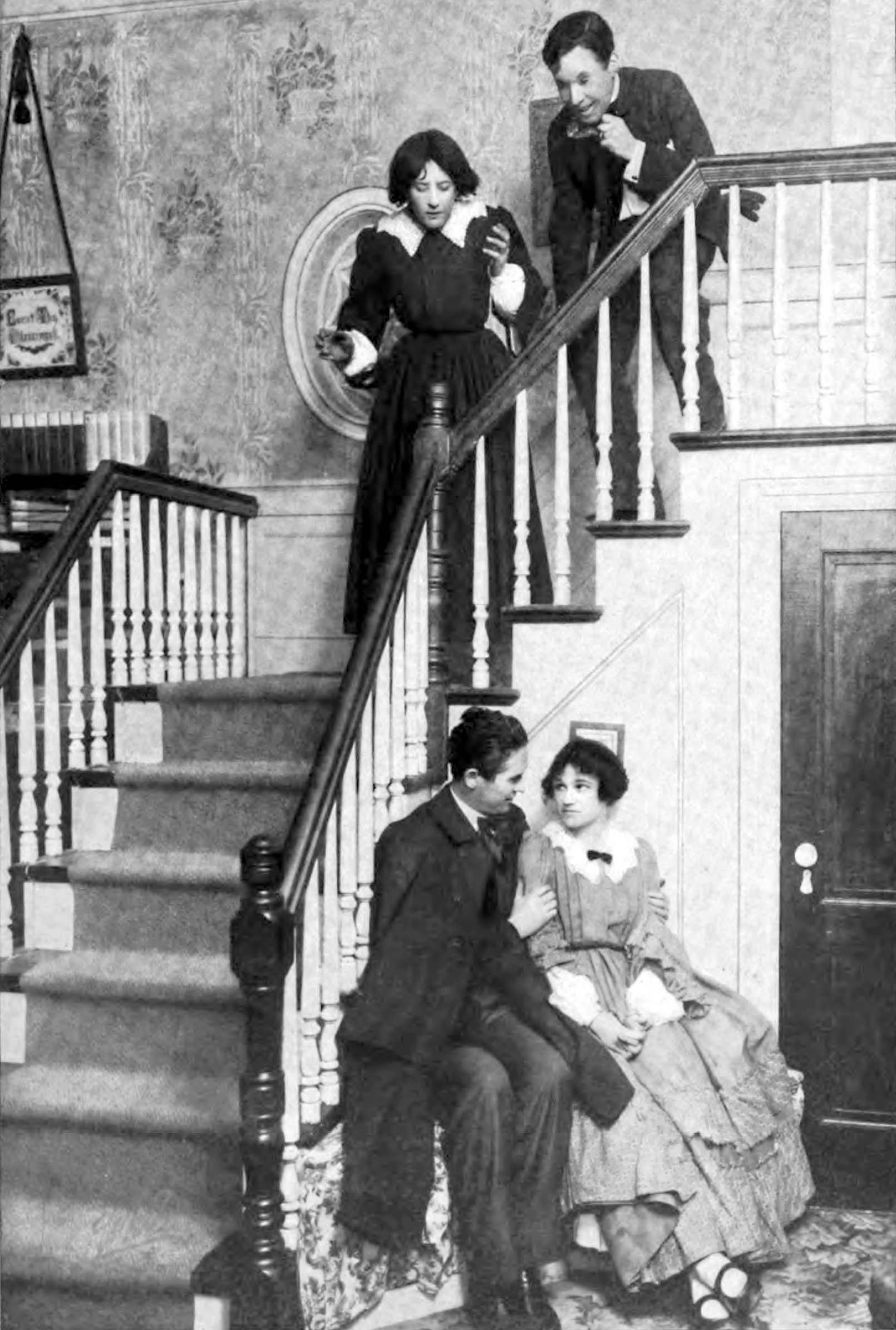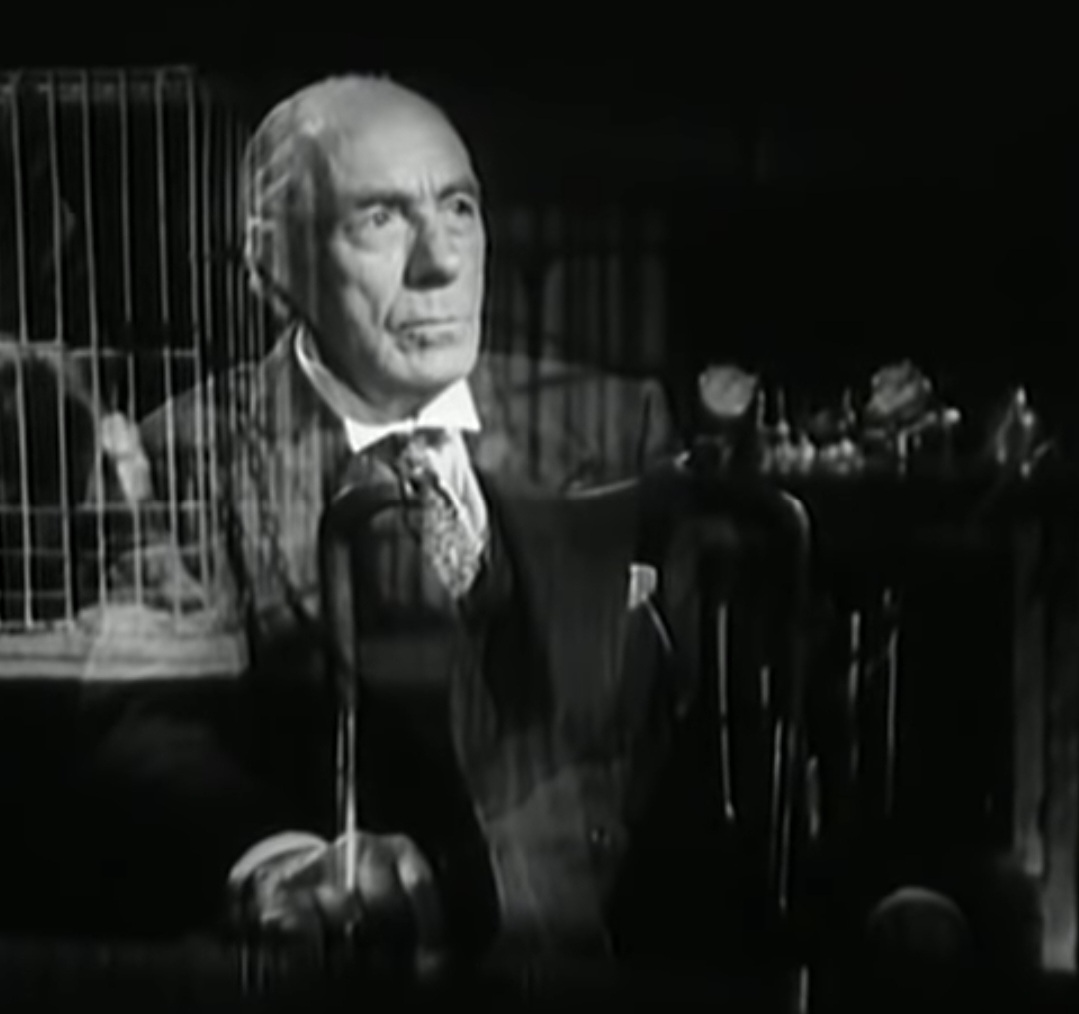|
Ann Vickers (film)
''Ann Vickers'' is a 1933 American pre-Code romantic drama directed by John Cromwell and starring Irene Dunne and Walter Huston. It is based on the novel of the same name by Sinclair Lewis. Plot After a military officer (Bruce Cabot) gets Ann Vickers ( Irene Dunne) pregnant and leaves her, she and friend Malvina Wormser (Edna May Oliver) go to Havana, where she gives birth, though the child dies soon after. Feeling conflicted and regretful, Ann devotes herself to social work, taking a job in a women's prison. However, when she tries to improve the conditions there, she loses her job. She instead writes a book about the harsh realities of the prison and begins a romance with a married judge, Barney Dolphin ( Walter Huston). Though progressive in his views, Dolphin is caught taking bribes and is sentenced to prison. Ann, once again pregnant, supports herself by writing until Dolphin is released a few years later. Finally, Ann, Dolphin, and their child are reunited. Cast * I ... [...More Info...] [...Related Items...] OR: [Wikipedia] [Google] [Baidu] |
John Cromwell (director)
John Cromwell (born Elwood Dager; December 23, 1886 – September 26, 1979) was an American film and stage director and actor. His films spanned the early days of sound to ''film noir'' in the early 1950s, by which time his directing career was almost terminated by the Hollywood blacklist. Early life and education Born as Elwood Dager in Toledo, Ohio to an affluent Scottish-English family, executives in the steel and iron industry, Cromwell graduated from private high school at Howe Military Academy in 1905, but never pursued higher education. Early acting career, 1905–1912 Upon leaving school, Cromwell immediately began his stage career touring with stock companies in Chicago, then made his way to New York City in his early 20s. Billed as Elwood Dager in his youth, he changed his name to John Cromwell at the age of 26 following a 1912 New York stage appearance. Cromwell made his Broadway debut in the role of John Brooke in ''Little Women'' (1912) an adaptation of Louisa M ... [...More Info...] [...Related Items...] OR: [Wikipedia] [Google] [Baidu] |
Mitchell Lewis (actor)
Mitchell Lewis (June 26, 1880 – August 24, 1956) was an American film actor whose career as a Metro-Goldwyn-Mayer contract player encompassed both silent and sound films. Born in 1880, Lewis appeared in more than 175 films between 1914 and 1956, although many of the roles in his later films were uncredited. He played supporting roles, such as Sheihk Idrim in 1925's '' Ben Hur'' in the silent era and Ernest Defarge in ''A Tale of Two Cities'' (1935) in the sound era, but his career would diminish to small uncredited roles like the Captain of the Winkie Guards in '' The Wizard of Oz'' (1939). His last film was ''The Fastest Gun Alive'', starring Glenn Ford and Broderick Crawford, which was released shortly before Lewis' death in 1956. Mitchell also served as one of the original board members of the Motion Picture Relief Fund, now known as the Motion Picture & Television Fund. Selected filmography * ''The Million Dollar Mystery'' (1914, Serial) - Gang Leader * ''Zudor ... [...More Info...] [...Related Items...] OR: [Wikipedia] [Google] [Baidu] |
The Sign Of The Cross (1932 Film)
''The Sign of the Cross'' is a 1932 American pre-Code epic film produced and directed by Cecil B. DeMille and released by Paramount Pictures. Based on the original 1895 play by English playwright Wilson Barrett, the screenplay was written by Waldemar Young and Sidney Buchman. It stars Fredric March, Elissa Landi, Claudette Colbert, and Charles Laughton, with Ian Keith and Arthur Hohl. Both play and film have a strong resemblance to the 1895–96 novel '' Quo Vadis'' and, like the novel, take place in ancient Rome during the reign of Nero. The art direction and costume design were by Mitchell Leisen, who also acted as assistant director. Karl Struss was nominated for an Academy Award for Best Cinematography. It is the third and last in DeMille's biblical trilogy, following ''The Ten Commandments'' (1923) and ''The King of Kings'' (1927). Plot During the Great Fire of Rome in AD 64, Emperor Nero fiddles. Tigellinus informs Nero that he is suspected of starting the fire. Nero ... [...More Info...] [...Related Items...] OR: [Wikipedia] [Google] [Baidu] |
Catholic Church In The United States
With 23 percent of the United States' population , the Catholic Church is the country's second largest religious grouping, after Protestantism, and the country's largest single church or Christian denomination where Protestantism is divided into separate denominations. In a 2020 Gallup poll, 25% of Americans said they were Catholic. The United States has the fourth largest Catholic population in the world, after Brazil, Mexico, and the Philippines. Catholicism first arrived in North America during the Age of Discovery. In the colonial era, Spain and later Mexico established missions (1769-1833) that had permanent results in New Mexico and California ( Spanish missions in California). Likewise, France founded settlements with missions attached to them in the Great Lakes and Mississippi River region, notably, Detroit (1701), St. Louis (1764) and New Orleans (1718). English Catholics, on the other hand, "harassed in England by the Protestant majority," settled in Maryland (16 ... [...More Info...] [...Related Items...] OR: [Wikipedia] [Google] [Baidu] |
Adultery
Adultery (from Latin ''adulterium'') is extramarital sex that is considered objectionable on social, religious, moral, or legal grounds. Although the sexual activities that constitute adultery vary, as well as the social, religious, and legal consequences, the concept exists in many cultures and is similar in Christianity, Judaism and Islam. Adultery is viewed by many jurisdictions as offensive to public morals, undermining the marriage relationship. Historically, many cultures considered adultery a very serious crime, some subject to severe punishment, usually for the woman and sometimes for the man, with penalties including capital punishment, mutilation, or torture. Such punishments have gradually fallen into disfavor, especially in Western countries from the 19th century. In countries where adultery is still a criminal offense, punishments range from fines to caning and even capital punishment. Since the 20th century, criminal laws against adultery have become contr ... [...More Info...] [...Related Items...] OR: [Wikipedia] [Google] [Baidu] |
Production Code
The Motion Picture Production Code was a set of industry guidelines for the self-censorship of content that was applied to most motion pictures released by major studios in the United States from 1934 to 1968. It is also popularly known as the Hays Code, after Will H. Hays, president of the Motion Picture Producers and Distributors of America (MPPDA) from 1922 to 1945. Under Hays's leadership, the MPPDA, later the Motion Picture Association of America (MPAA) and the Motion Picture Association (MPA), adopted the Production Code in 1930 and began rigidly enforcing it in 1934. The Production Code spelled out acceptable and unacceptable content for motion pictures produced for a public audience in the United States. From 1934 to 1954, the code was closely identified with Joseph Breen, the administrator appointed by Hays to enforce the code in Hollywood. The film industry followed the guidelines set by the code well into the late 1950s, but it began to weaken, owing to the combine ... [...More Info...] [...Related Items...] OR: [Wikipedia] [Google] [Baidu] |
Screenplay
''ScreenPlay'' is a television drama anthology series broadcast on BBC2 between 9 July 1986 and 27 October 1993. Background After single-play anthology series went off the air, the BBC introduced several showcases for made-for-television, feature length filmed dramas, including ''ScreenPlay''. Various writers and directors were utilized on the series. Writer Jimmy McGovern was hired by producer George Faber to pen a series five episode based upon the Merseyside needle exchange programme of the 1980s. The episode, directed by Gillies MacKinnon, was entitled ''Needle'' and featured Sean McKee, Emma Bird, and Pete Postlethwaite''.'' The last episode of the series was titled "Boswell and Johnson's Tour of the Western Islands" and featured Robbie Coltrane as English writer Samuel Johnson, who in the autumn of 1773, visits the Hebrides off the north-west coast of Scotland. That episode was directed by John Byrne and co-starred John Sessions and Celia Imrie. Some scenes wer ... [...More Info...] [...Related Items...] OR: [Wikipedia] [Google] [Baidu] |
Extramarital Sex
Extramarital sex occurs when a married person engages in sexual activity with someone other than their spouse. The term may be applied to the situation of a single person having sex with a married person. Where extramarital sexual relations do not breach a sexual norm, it may be referred to as consensual ''non-monogamy'' (see also ''polyamory''). Where extramarital sexual relations do breach a sexual norm, it may be referred to as ''adultery'' or ''non-monogamy'' (sexual acts between a married person and a person other than the spouse), ''fornication'' ( sexual acts between unmarried people), ''philandery'', or ''infidelity''. These terms imply moral or religious consequences, whether in civil law or religious law. Prevalence American researcher Alfred Kinsey found in his 1950-era studies that 50% of American males and 26% of females had extramarital sex. Depending on studies, it was estimated that 26–50% of men and 21–38% of women,Choi, K.H., Catania, J.A., & Dolci ... [...More Info...] [...Related Items...] OR: [Wikipedia] [Google] [Baidu] |
Birth Control
Birth control, also known as contraception, anticonception, and fertility control, is the use of methods or devices to prevent unwanted pregnancy. Birth control has been used since ancient times, but effective and safe methods of birth control only became available in the 20th century. Planning, making available, and using birth control is called family planning. Some cultures limit or discourage access to birth control because they consider it to be morally, religiously, or politically undesirable. The World Health Organization and United States Centers for Disease Control and Prevention provide guidance on the safety of birth control methods among women with specific medical conditions. The most effective methods of birth control are sterilization by means of vasectomy in males and tubal ligation in females, intrauterine devices (IUDs), and implantable birth control. This is followed by a number of hormone-based methods including oral pills, patches, vaginal rings ... [...More Info...] [...Related Items...] OR: [Wikipedia] [Google] [Baidu] |
Wally Albright
Wally Albright (born Walton Algernon Albright Jr.; September 3, 1925 - August 7, 1999) was an American actor, water sportsman, and businessman. As a child actor, he was best known for his role in the '' Our Gang'' film series. Career The son of Wally and Lois Albright, he was born in Burbank, California. He was seen in a film with Gloria Swanson in 1928. He appeared in a number of films during his career, and is notable for appearing in six '' Our Gang'' short subjects throughout the early 1930s. Though his tenure with the gang was brief, his role was usually that of the gang leader alongside Matthew "Stymie" Beard. Albright played so many roles as a baby that he was quite well-known by the time he was three. He appeared in the small parts of various films made by Hal Roach Studios. At the end of 1933, when Gus Meins took over directing, ''Our Gang'' needed a few new characters. Several older ''Our Gang''ers left the series in the summer of 1933, including Dorothy DeBorba a ... [...More Info...] [...Related Items...] OR: [Wikipedia] [Google] [Baidu] |
Rafaela Ottiano
Rafaela Ottiano (4 March 1888 – 15 August 1942) was an Italian-American stage and film actress. Early life Rafaela Ottiano was born in Venice, Italy. She immigrated to the United States with her parents and was processed at Ellis Island in 1910. (Another source says that she and her sister, Maria Francesca, arrived in New York on April 30, 1899.) Ottiano was named for a sister, Rafaela Bellizia Ottiano, who was born in Boston in 1886 and died in infancy. Their parents were Antonio Ottiano, a musician, and his wife, Maddalena Polcari Ottiano. The couple also had three sons, Pasquale, James, and Augustino. The family lived in Boston. Ottiano worked as a saleslady in a New York City department store befor ... [...More Info...] [...Related Items...] OR: [Wikipedia] [Google] [Baidu] |
Reginald Barlow
Reginald Harry Barlow (June 17, 1866 – July 6, 1943) was an American stage and screen character actor, author, and film director. He was a busy performer in Hollywood films of the 1930s. Early life A native of Cambridge, Massachusetts, and son of the old-time minstrel, Milt G. Barlow (1843–1904), Barlow made his stage debut at the age of twelve in his father's minstrel troupe of ''Barlow, Wilson, Primrose, and West''. Barlow joined the 2nd (Special Service) Battalion of The Royal Canadian Regiment on October 22, 1899, for service in South Africa during the Second Boer War. According to newspaper and other accounts, he did also serve in the United States Army during the Spanish–American War and World War I, and eventually rose to the rank of full colonel in 1923. Barlow had thoughts of quitting the stage for the church in 1908 and at the time remarked to an interviewer: "All my ancestors have been soldiers, actors, and ministers, and some of them all three. I am a ... [...More Info...] [...Related Items...] OR: [Wikipedia] [Google] [Baidu] |







